The environmental movement has lost a valiant advocate
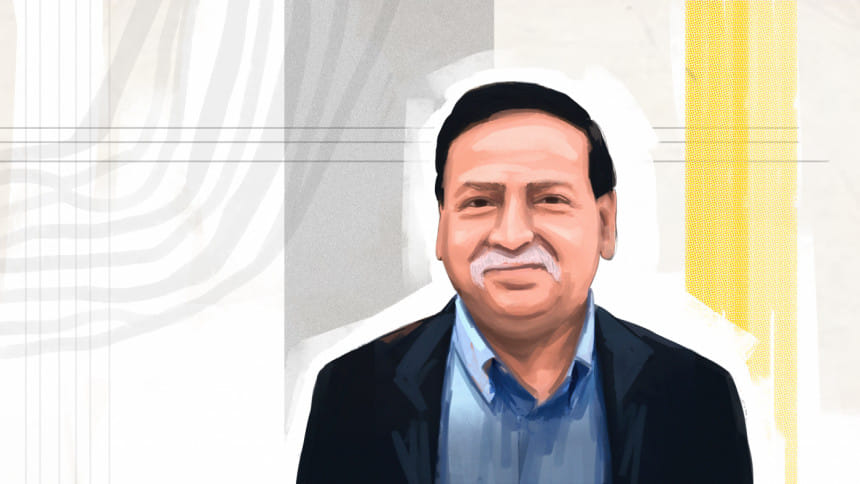
Saleemul Huq, the environmental crusader and climate change hero passed away on the morning of October 28. For me, Saleem was an activist friend, a mentor, and a fellow traveller. We both taught at Dhaka University, wrote a regular column for The Daily Star, and shared a common passion for environmental analysis.
I first met Saleem in December 1980. I was finishing up my PhD in economics and had been assigned to work in Dhaka as a doctoral fellow for the International Food Policy Research Institute. Saleem had just gotten back from Britain with a PhD in Botany. We were teaching at DU, and he came to my parent's house in Bara Moghbazar. We clicked immediately. Or rather, I was impressed by his calm and humble demeanour—a remarkable trait that he never shed as he climbed the stairs of fame and accomplishments.
While our methods and approach towards environmental policy were different, we had a common vision. I would see him at BIDS and the World Food Programme (where I had my office) but mostly at the home of his sister, Shamim, and brother-in-law Akbar Hossain Dara's living room in Dhanmondi. After a few years, Saleem left the DU job to establish the Bangladesh Center for Advanced Studies (BCAS) with fellow scientist Atiq Rahman. Since then, I have seen firsthand how he carved out his niche in the global environmental movement and pushed the goalpost further along in his lifelong commitment towards a cleaner ecosystem, justice, equity, and building resilience among the poor and vulnerable. One of his biggest contributions is the prominence of the Loss and Damage fund, as well as the smaller countries coalition.
The accolades for Saleem came pouring in from his peers and the media across the globe. The New York Times paid homage to him as a "Bangladeshi Spearhead on Climate Change." A sampling of other tributes illustrates the depth and breadth of respect he had garnered through his legacy, which is truly unparalleled and inspiring.
For me, Saleem and the BCAS office in Dhanmondi became a live-in laboratory and a refuge whenever I travelled to Dhaka for various projects. In 1994, I was working for the National Bureau of Revenue on a TOKTEN project on carbon tax in Bangladesh. I had started my journey as an environmental economist only a few years before and I had a lot of unanswered questions regarding the practical application of the tools in the context of Bangladesh. I landed at BCAS, where Saleem not only provided me with a desk but also the camaraderie, contacts, and networking knowledge that came in handy for my subsequent engagements in Bangladesh while living abroad.
As an economist, my approach to environmental issues was different from Saleem's. Our paths sometimes crossed, but he never tried to push his agenda on me. When I was working on the Economist's Report for the National Environmental Management Action Plan in order to prioritise Bangladesh's major environmental problems, I worked closely with Saleem, who offered me a scientific angle. I told him about a few economic tools that we use: cost-benefit analysis, opportunity cost of each intervention, and the value of life. While we did not see eye-to-eye on the priorities list, he nonetheless hosted a conference at BCAS and took me around to the various ministries to enable me to discuss my work-in-progress.
Saleem became one of the leading scientists and a key figure in the United Nations Framework Convention on Climate Change (UNFCCC). He left his mark on every global environmental scene: climate negotiations, emissions targeting, adaptation and mitigation, loss and damage, and national strategies. Saleem was leading the charge for us, the countries now facing the scourge of rapid climate change at almost all climate negotiations over several decades, including the annual Conference of Parties meetings, which he attended every year since 1995.
Saleem believed in community participation, and promoted a dialogue at the grassroots level to identify environmental challenges. I had the good fortune to work with him on the UNDP-USAID-funded project on NEMAP. During my trips to the country in early 1996, Bangladesh was in the midst of political unrest. Saleem and Atiq at BCAS provided me with a much-needed sanctuary during those days when I was trying to navigate frequent hartals, street demonstrations, closures, and other roadblocks. He was already wearing many hats simultaneously, and his talent and dexterity in handling everyday issues at BCAS—as well as his knack for strategising long-term missions—reinforced my admiration for him. We had lunch often at his office's cafeteria and his apartment in Dhanmondi, where he'd introduced me to his growing family and his father-in-law, a former central banker.
The next two decades saw Saleem conquer one peak after another. He worked as a senior fellow at the International Institute for Environment and Development in the UK, where he had many roles, including fortifying negotiating capacity and supporting the engagement of the Least Developed Countries (LDCs) in the UNFCCC.
Saleem was a pro at building institutions, grooming the next generation, and pushing the envelope. He founded the ICCCAD in 2009 and initiated the LDCs Universities Consortium on Climate Change (LUCCC) in 2017. The climate-change-related financial burden suffered by the most vulnerable countries, such as Bangladesh, was always on his mind.
Ahead of COP28 in November, he wrote an open letter to the president of the UN climate summit: "In my opinion, Antonio Guterres should get the support of every global citizen to save humanity from itself. There is no more time to lose. Substantial changes must be made at COP28 in Dubai." It is my hope that the meeting will move forward towards the realisation of Saleemul Huq's dreams.
Dr Abdullah Shibli is an economist and works for Change Healthcare, Inc, an information technology company. He also serves as senior research fellow at the US-based International Sustainable Development Institute (ISDI).
Views expressed in this article are the author's own.
Follow The Daily Star Opinion on Facebook for the latest opinions, commentaries and analyses by experts and professionals. To contribute your article or letter to The Daily Star Opinion, see our guidelines for submission.

 For all latest news, follow The Daily Star's Google News channel.
For all latest news, follow The Daily Star's Google News channel. 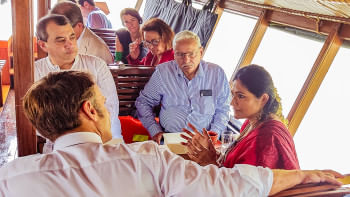
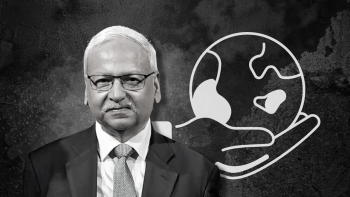



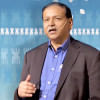
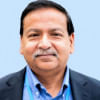



Comments